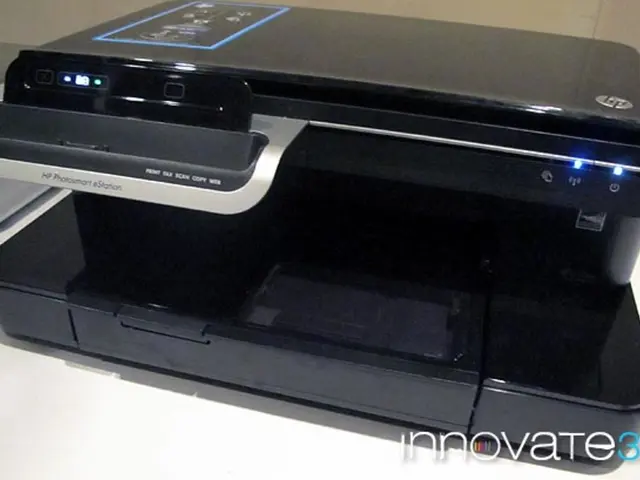Rapid Electric Vehicle (EV) charging stations organized in clusters, designed to prevent grid overload
In a significant stride towards accelerating the adoption of electric vehicles (EVs) in Australia, technology companies SwitchDin and EV-NRG are set to introduce a new charging solution for fleet operators. Claimed to be the fastest and most reliable, this solution promises to charge EVs in as little as 20 minutes.
The new charging solution, which has already been delivered to one of Australia's largest fuel suppliers, Viva Energy, operating Shell branded retailers, focuses on ultra-fast charging capabilities, high uptime, and robust management software to minimize downtime and maximize fleet productivity.
Key features include DC fast charging with power levels of 250 kW to 400 kW, ruggedized infrastructure for reliability, and integrated management platforms offering real-time monitoring and predictive maintenance.
Across the nation, fleets are taking a leading role in the adoption of electric vehicles. Bus operators, in particular, are rapidly adopting all-electric fleets. Depots for electric bus fleets require large grid connections, and most charging for these fleets will occur in depots.
Each charging cluster, referred to as "Blueberry Clusters," provides four charging points and 500kW of charging power across the cluster. This means that EVs can be charged from 10 to 80 percent in under 20 minutes.
The increasing demand for high-power Megawatt Charging Systems (MCS) will be accelerated by the new global MCS Standard currently being trialled globally. The MCS standard, a new global EV charging connector standard designed for both AC and DC charging, aims to unify charging interfaces globally and improve interoperability.
Trials for the MCS standard are currently advancing internationally with multiple major EV OEMs and charging infrastructure providers participating to test compatibility, reliability, and scalability in real-world fleet operations. The MCS standard targets ultra-fast charging with ports capable of handling 350 kW and above to meet growing commercial fleet demands.
The ongoing trial phases emphasize interoperability testing and global harmonization for commercial fleets, supporting the expansion and operational efficiency of EV logistics worldwide.
Joshua S. Hill, a Melbourne-based journalist who has been writing about climate change, clean technology, and electric vehicles for over 15 years, wrote this article. He has been reporting on electric vehicles and clean technologies for Renew Economy and The Driven since 2012.
SwitchDin, a software development company based in Newcastle, developed the VEF platform used to allocate and distribute power in large charging sites with 10-100+ plugs. EV-NRG, an electric vehicle charging technology company located on the Gold Coast, is also involved in the rollout of the new charging solution.
Solar and battery systems are often used to support the demand in depots, making the transition to electric fleets not only environmentally friendly but also cost-effective. With the rollout of these fast and reliable charging solutions, the future of electric fleet operations in Australia looks promising.
The new charging solution, developed by SwitchDin and EV-NRG, is revolutionizing electric vehicle (EV) operations in Australia, particularly for fleet operators. With ultra-fast charging capabilities, high uptime, and robust management software, it promises to charge EVs in as little as 20 minutes, addressing the needs of depots for electric bus fleets. Key features include DC fast charging with power levels of 250 kW to 400 kW, integrated management platforms offering real-time monitoring and predictive maintenance, and a focus on scalability to meet growing commercial fleet demands. The increasing demand for high-power Megawatt Charging Systems (MCS) will be accelerated by the new global MCS Standard, aiming to unify charging interfaces globally and improve interoperability, thereby supporting the expansion and operational efficiency of EV logistics worldwide.




